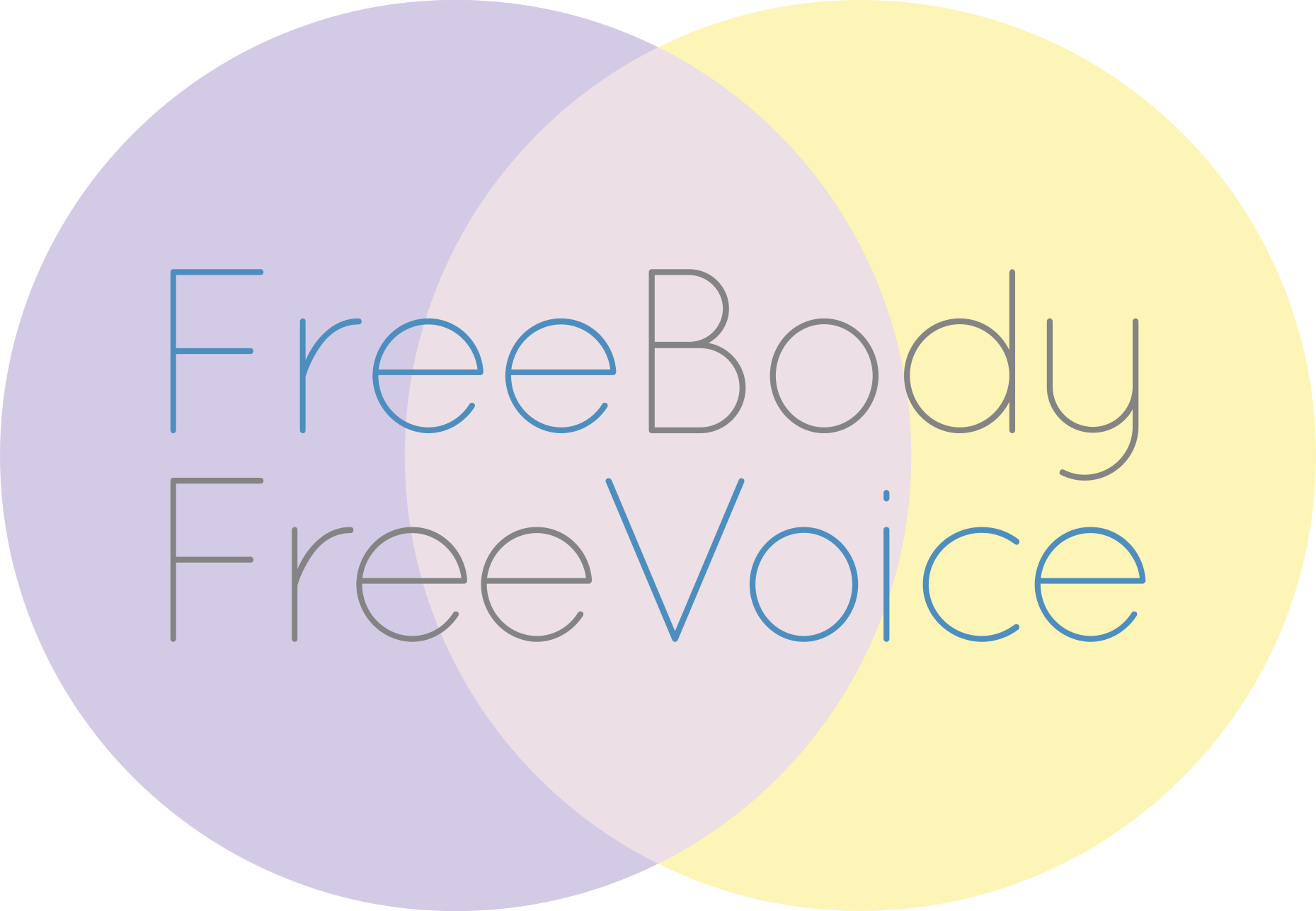The role of abs in singing
If there's any aspect of singing technique that is rampant with misconceptions, it's the concept of "breath support". Actually, that's not a phrase I use at all in my teaching, because it tends to elicit unnecessary and counterproductive effort in singing.
As in most singing misconceptions, there is a grain of truth in the idea of breath support: when a tone is well-produced, a certain whole-body tone comes into play. This muscular tone—analogous to that which would be necessary for ANY demand on the system, like jumping, for instance—increases with greater volume and (in a different way) with higher pitch. Ideally, the extra muscular effort will be evenly distributed throughout the body. So, yes, the abs get a little firmer, but so do all your other muscles. Perhaps it's just easier to detect the extra tone in your abdomen.
We singers get into trouble when we attempt to locally create muscle tone in a particular part of the body. Most often, the abdominal muscles are singled out for "supporting" the breath. People will poke their bellies out, or suck them in, or contract the abs as in doing crunches. Any of these direct engagements of muscle effort throw off the balance of the whole. This can have a number of deleterious effects on the singing mechanism, subjecting the vocal cords to excesses of pressure (often experienced as a "tickle" in the throat) and preventing the free movement of the ribs.
[On a side note, many people incorrectly refer to the engagement of the abs as "supporting with the diaphragm". Your diaphragm, however, is a completely internal structure, and horizontally oriented, unlike the vertical sheet of ab muscle. It's located all around the bottom of the ribcage, dividing your torso into an upstairs (lungs and heart) and a downstairs (digestive organs). Also, it's not innervated with sensory nerves, so you can't feel its action, only the indirect movement of structures attached to it, like the ribs, which are moved by the contractions of the diaphragm.]
Even when I am intending to not over-engage my abs in singing, the tendency sneaks in below my level of awareness. I think this comes from a lifetime of being encouraged to "breathe from the belly" and "support the tone"...not to mention the societal pressure to have a flat stomach. (Does this breath support make me look fat?)
To help myself monitor what is actually happening in my abs while singing, I often put my open hand on my solar plexus area, just under the arch of the ribs in front. This "biofeedback mechanism" lets my brain know what my abs are doing. I don't even have to try not to engage them—the awareness itself is enough to prevent the unwanted efforting.
In my last lesson with my voice teacher, Donna Reid, we discovered that raising the arms above the head on the inbreath and keeping them raised while singing has a powerful inhibitory effect on ab over-engagement. We tried applying this technique to a phrase I've found challenging: the climactic high F-sharp (in my key) near the end of Strauss's song Zueignung. Singing it with my arms raised kept my abdominal over-exertion at bay, making the note/phrase ludicrously easy and investing my tone with a bright, ringing lyric quality that was unfamiliar and wonderful. Even better, we discovered after I'd sung this phrase that Donna had given me the wrong starting pitch, meaning I had actually sung a climactic high G!
Try these two "tricks" for calming down your own abs while singing and let me know how it goes. If you're my student, we will surely experiment with them in your lessons.
